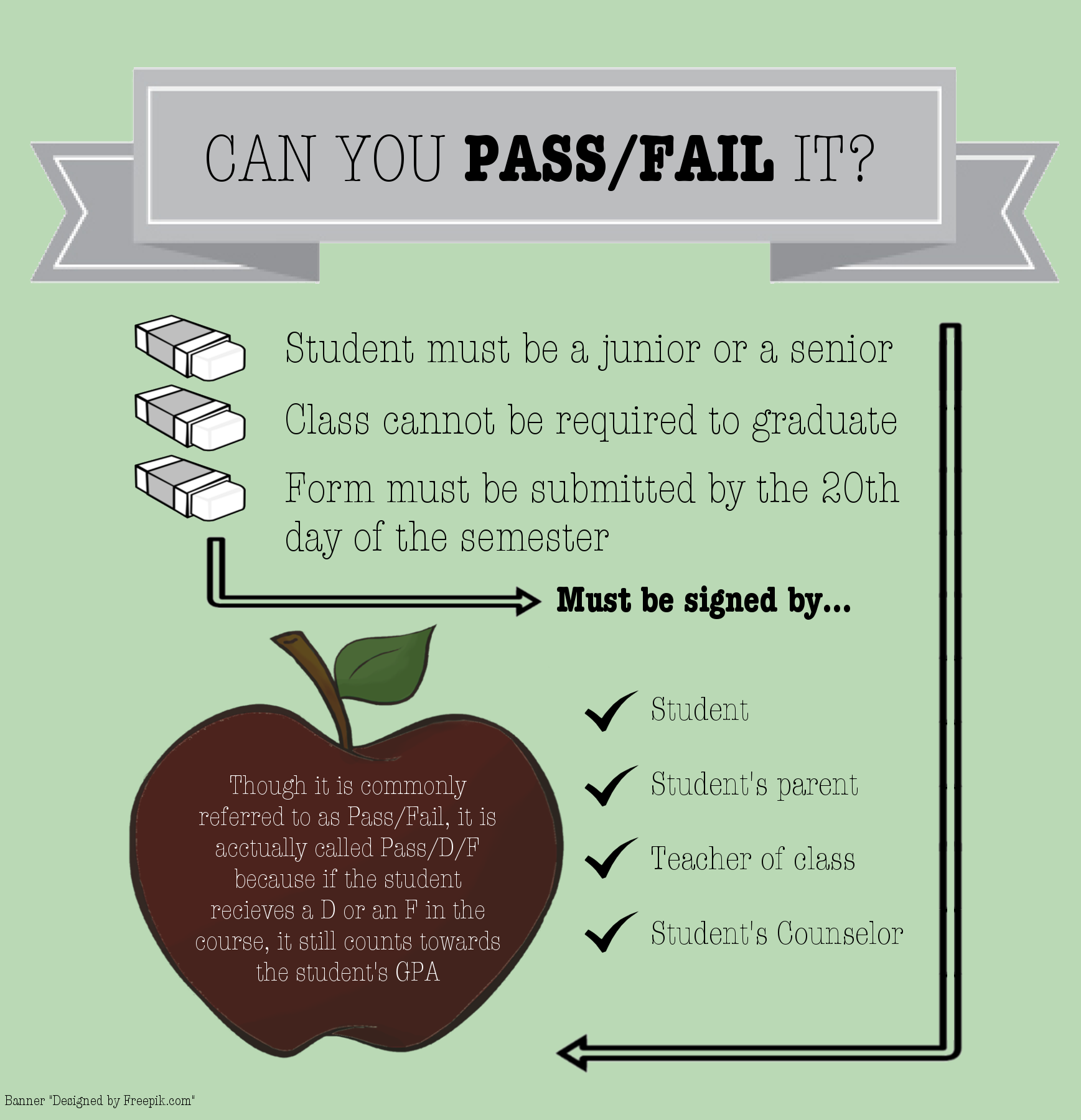Pros and Cons for taking courses pass/D/F
February 16, 2016
Students are accustomed to seeing their report cards dotted with letters A through F at the end of the semester. For the Naperville Central students taking a class pass/D/F, however, a “P” may show up among the familiar letters.
The option of taking a class pass/fail is only open to juniors and seniors for one class per semester that is not required for graduation. For example, if a student is taking Drawing 1 and needs that class for a fine arts credit, he or she would not be able to take that class pass/D/F.
A passing grade indicates that the student received an A, B or C in the class, and this grade will not count toward their GPA. However, if the student receives a D or an F in the class, they do not pass and the D or F is factored into their GPA. Though commonly referred to as “pass/fail,” the system is technically called “pass/D/F” for this reason.
One motive behind taking a class pass/D/F is to prevent a non-weighted grade from lowering their GPA, particularly for students in multiple honors or AP courses.
“If you’re a student who takes a lot of weighted courses, the non-weighted course can pull your GPA down, presuming of course that [the student] does well in those AP and honors courses,” Counselor Michelle Kirincich said.
Another reason behind this alternative grading system is easing the pressure off of students under stress.
“Sometimes [pass/D/F] becomes an option if the student has really had an emotionally difficult semester and we just need to take the pressure off,” Kirincich said.
Pass/fail is also a helpful option for students who want to try out a new subject area.
“Kids will [take a class pass/D/F] when they take a class just for the experience, but it’s not something that’s a graduation requirement,” Intervention Dean Merigan Neben said.
Currently, this alternative grading option is not widely used, with only six juniors and seniors taking a class pass/D/F.
According to Kirincich, the amount of the students utilizing the pass/D/F option has decreased since Central stopped ranking students.
“Kids were very concerned about a non-weighted grade affecting their GPA…for a kid in lots of honors classes, having that non-weighted grade will pull your GPA down,” Kirincich said. “It’s been less of an issue in the past five or six years, definitely not nearly as many as it was when we were still using rank.”
Students intending to take a class pass/D/F should first consider whether taking a class pass/fail will reflect negatively on his or her college application.
“[Colleges] would probably see the motivation of taking something pass/fail is that you’re concerned that you might not get a good grade in the class and that you might harm your GPA,” Childers said, “or that you’re overwhelmed by your schedule for that year, that you’re trying to lighten your load so that you don’t have to worry about taking tests.”
However, according to Childers, taking core academic classes (communication arts, math, science and social studies) pass/D/F is less appealing to colleges than taking elective courses pass/fail. Childers also notes that more selective colleges tend to prefer to not see pass/fail on students’ transcripts at all.
Childers also advises students not to take classes pass/D/F if the class is related to his or her intended major.
“If [the class a student is taking pass/fail] has little to do with what they’re going to study in college, [admissions counselors] probably don’t care,” Childers said. “But if they’re going to go off and study engineering and they took a math or a science class pass/fail, that would be a critical problem.”
Students interested in taking a class with the pass/D/F option need to submit a form signed by him or herself, his or her parent, the teacher of the class and his or her counselor. Forms can be picked up in Student Services and must be submitted to the student’s counselor on or before the 20th day of the semester.









